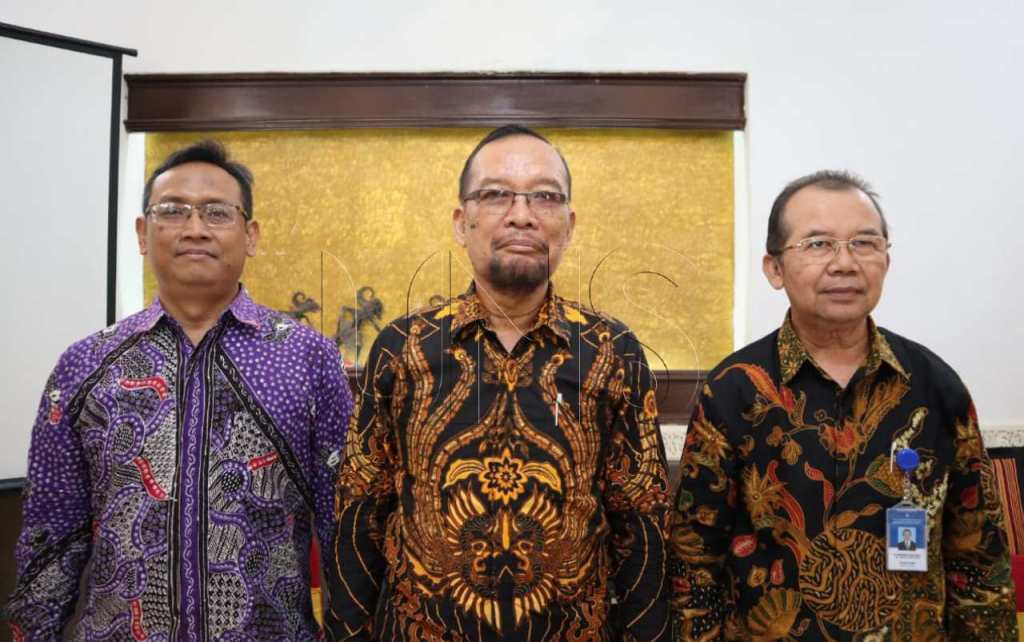Sebelas Maret University (UNS) returned to inaugurate 3 professors, one of which was from a Mechanical Engineering lecturer. These three professors were Prof. Dr. Eng. Syamsul Hadi S.T, M.T Professor of Mechanical Engineering at the FT, Prof. Pranoto M.Sc is a Professor in the Field of Water Environmental Chemistry at FMIPA, and Prof. Dr. Munawir Yusuf M.Psi Professor of Inclusive Education Management at FKIP
In a press conference held at Goela Kelapa Manahan on Friday (11/15/2019), UNS Deputy Public Relations Dr. Intan Novela QA said that Prof. Dr.Pranoto is the 207th Professor of UNS and 15th FMIPA, then Prof. Munawir Yusuf is the 208th and 62nd Professor of FKIP and Prof. Dr. Eng. Syamsul Hadi is the 209th Professor of UNS and 11th FT.
Prof. Dr. Eng. Syamsul Hadi will deliver the inaugural speech with the title ‘Renewable Energy for Sustainable Indonesian Development’. Energy is an important component in life. The need for energy availability will continue to increase along with the times that occur.
Non-renewable energy is still a major need in several developing countries, including Indonesia, which makes fossil-based energy (non-renewable energy) as the main energy source for national needs (ESDM, 2019).
The National Energy Council in the 2019 Indonesia Energy Outlook (OEI) book which provides an overview of the projected national energy demand and supply in 2019-2050 based on social assumptions, economic and technological developments going forward using 2018 baseline data stating that power generation capacity is up to in 2018 it reached 64.5 GW or an increase of 3% compared to the capacity in 2017. The installed capacity of power plants in 2018 mostly came from fossil energy plants, especially coal (50%), followed by natural gas (29%), fuel (7%) and renewable energy (14%).
While wind and biomass plants, including renewable energy, even though they already exist, their role is small. Looking at the problems with the national energy crisis, the government is pushing to increase the use of renewable energy.
The National Energy Policy (KEN) mandates a renewable energy mix target in the primary energy mix of at least 23% by 2025 and minimizes the use of petroleum less than 25% by 2025. One effort to increase the use of renewable energy is the Green Building Program. This program regulates the efficient use of resources in a building throughout its entire life cycle (Nguyen et al, 2017).
“The potential of water as a source of renewable energy (renewable energy) is very promising in Indonesia given that the high rainfall in Indonesia monthly averages in 1961 – 1993 in Indonesia is calculated using the parameters of the ECMWF (European Center for Medium Range Weather Forecast) model parameter is 250 mm (Aldrian, 2000) as well as the very high growth of high rise building construction have the advantage of utilizing wastewater flowing in the pipes for pico / nano scale power plant needs, “said Prof. Syamsul.
source: uns.ac.id


